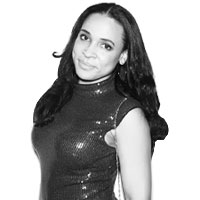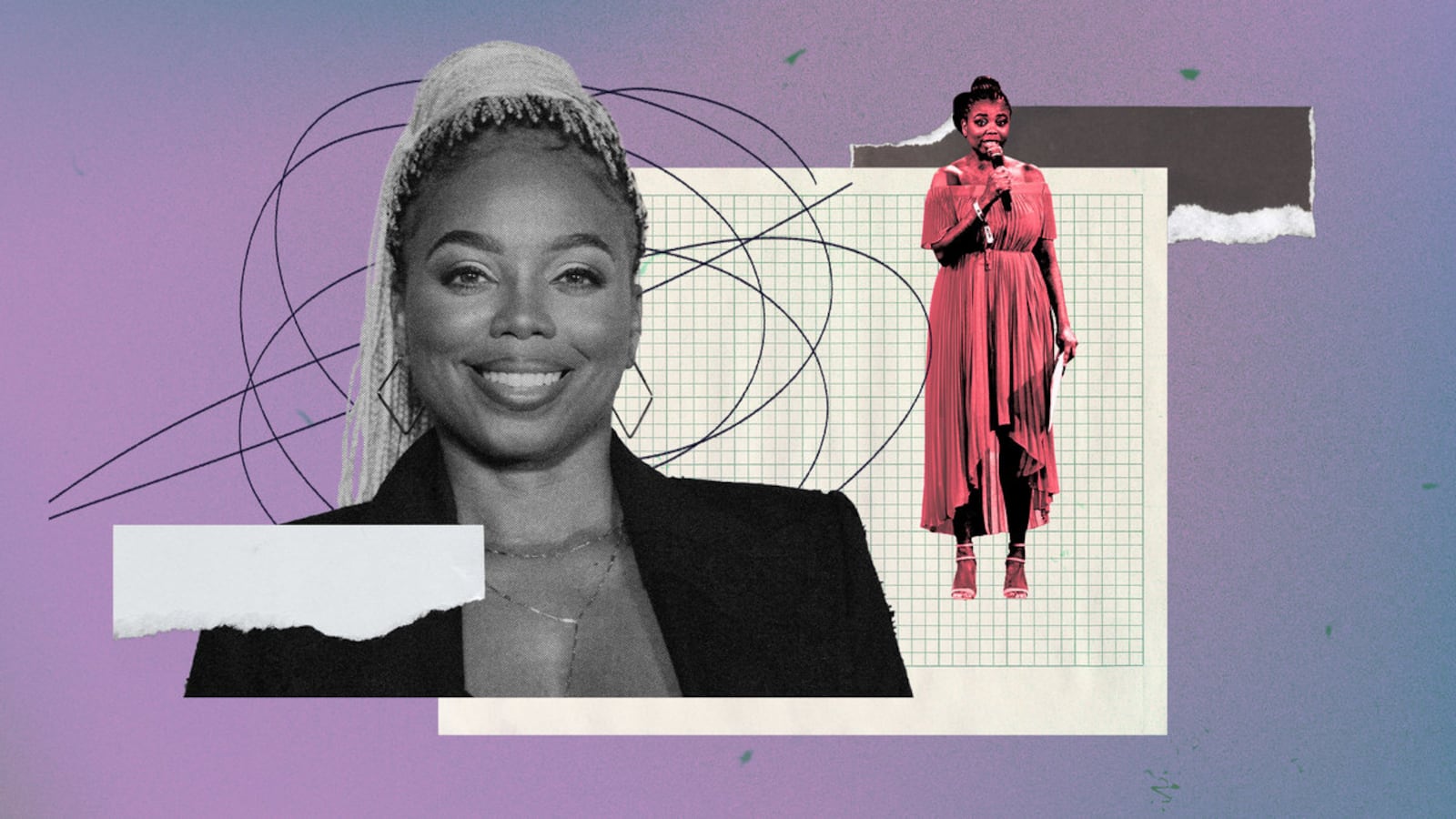Reading has been a passion of mine since I was a kid barely able to read full sentences. The passion made sense for an aspiring writer. Though I’ve always been more into novels than nonfiction, I could still read a biography of a public figure or someone I looked up to and feel compassion, empathy, or find some way to relate to their world.
However, it wasn’t until I read Jemele Hill’s new memoir Uphill that I felt as if I was seen.
So, at the outset of our interview, I told the well known journalist that there was a chance I could get emotional during the conversation.
I saw myself in some of those battles she described in her autobiography: moments where I questioned my purpose, times when I felt like I was more of a burden and nearly wished my existence away. Growing from Black girls to Black women, we’re pulled in so many directions, and it’s difficult to maintain a sense of self. We come into the world fighting everyone, even those closest to us, for a chance to live. If we make it far enough, we fight to prove we’re worth it. Simultaneously, we have to prove our femininity while being reminded of our lack of proximity to whiteness.
Add a journalistic career on top of that, and the Black woman is in an exhausting battle of protecting each segment of her identity.
Hill holds nothing back—including that multi-layered consciousness—in her recently-released autobiography, Uphill. Shifting through life as a girl with dreams, to a woman with a huge reality, she explores those dichotomies and, ultimately, how they led her to unexpected turns on a triumphant path.
“When people ask me about if I would change anything or do anything differently, the answer is no,” Hill said during an interview with The Daily Beast. “I’d want it exactly the same, even though, yes, it came with some pain and some trauma and… some unfortunate scars. But I just really don’t believe that I would be the person today without it.”
Unapologetically Black, the trailblazing sports journalist sat down with the Beast for a video call. She was decked out in a T-shirt with the colors of the pan-African flag; it read, “Support Black Journalists” with a Black pride fist that, at the bottom, transformed into a pen. Honey-colored box-braids were piled high on her head like a crown.
Prior to diving into her own Detroit upbringing in the memoir, Hill detailed her family’s backstory: her mother’s sexual assault and abuse as a child, both of Hill’s parents battling ongoing drug addictions, and her mother’s pregnancy at 18.
“I wanted to share… my family’s relationship with addiction because I wanted to take the shame off of it,” Hill explained. “That’s why I decided to share a lot of really personal details in this memoir. I think a lot of us walk around sort of cloaked in shame, whether it be about family history, whether it be about our own history, whether it be about decisions you personally made.”
Then in the book, Hill explained her life simply trying to survive as a child. She became estranged from her father after he and her mother split, and her mother sometimes lost herself as a parent trying to find access to the next high. Meanwhile, Hill was constantly moving to new homes with her mother—and occasionally her mother’s various boyfriends—trying to find some sort of normalcy. Leering men seeping in and out of the picture had a lasting impact on both Hill and her mother.
As Hill grew up, the relationship with her mother became more complicated, sometimes volatile. Her mother threatened to kick her out of the house after finding and reading her journal. There were times when Hill resided with her maternal grandmother, who also did not have a great relationship with Hill’s mother.
“There were times… when my mother was just flat-out mean. And I didn’t know where that was coming from or what was driving that. So, for me, it just felt like there was something in me or about me that my mother didn’t like,” Hill said.
She added that it wasn’t until much later that she realized what her mother went through as a young woman and the ensuing post-traumatic stress.
“We especially see this when it comes to Black mothers and Black daughters where there is a level of pain they’re feeling,” she said. “Sometimes, the only outlet to release that pain, that anger, that frustration, might be on their daughter. I very much had to absorb that. That’s part of navigating around the abuse.”
So much of what Hill emotionally inherited was part of a cycle she knew she had to break.
The future sports writer began her professional journey by writing stories and keeping a journal as a child.
“Journaling was a big release for me. I was carrying so much pent-up emotion and things, I needed some place to put them. It provided a space for me,” she said. “It gave me agency. That was something I desperately needed growing up because…I did not feel in control in any of my circumstances. I needed some place where it felt like I had some say-so in what was happening to me. Journaling was the place where that existed.”
Eventually, Hill’s journal entries morphed into a career: internships with the local Detroit paper while in high school and writing positions in college. It took no time for her interest in sports—a love she shared with her former stepfather—to raise the stakes in her journalism career.
It also took her no time to realize her position as a Black woman in the industry.
Pushback and hate mail didn’t bother her, she said. Instead, it made her more determined to succeed.
Even as she climbed to a broadcast role at ESPN, Hill said there’s more to journalism than being objective, especially as a Black journalist during the age of the Trump presidency.
“We should’ve been telling people to tell the truth,” she said when it came to former President Donald Trump’s racial controversies. “Objectivity and the truth are not the same thing. Truth has a side.”
She told The Daily Beast that the media world wanted Black journalists to “divorce our experiences and our identity from the reporting that we do when we understand the injustice that is happening to our community. We understand the levers and mechanisms of institutional racism and how it’s impacted us.”
She claimed the media didn’t do its job and took advantage of the Trump campaign and presidency for the sake of ratings.
In the memoir, Hill shared the story of her ESPN suspension after tweeting that the former president was a white supremacist. It became a huge viral moment that even disrupted the daily livelihoods of her colleagues.
“Where mainstream journalism does not understand the precarious position that Black journalists are in, is that they want us to lead with journalism first. We’re Black. It’s different,” she told The Daily Beast. “We have a much deeper responsibility. Not just to our community, but in terms of how we see ourselves. That can’t be objective. That doesn’t mean we can’t be fair. Objectivity and fairness are not the same thing.”
Now operating her own media company, The Unbothered Network, Hill has become a voice of the intersectionality of race within other verticals. However, she still has dreams from her childhood that she would like to fulfill.
“I need life to slow down a little bit,” she said. “I have many ideas in my head all the time about the type of stories I want to write. When the dust settles from this season…I’m going to buckle down and write the story that has been in my head.”
“I’d like to think and hope this book is an entry point to that.”






